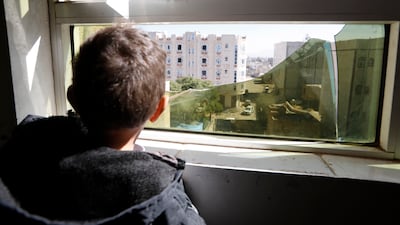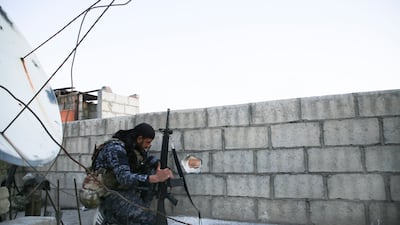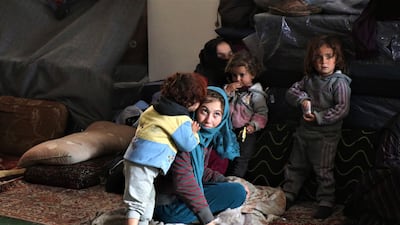In his memoir A Long Way Gone: Memoirs of a Boy Soldier, Ishmael Beah summed up the unique horrors inflicted on children when they are forced to take up arms: "Every time people come at us with the intention of killing us, I close my eyes and wait for death. Even though I am still alive, I feel like each time I accept death, part of me dies.”
Acknowledging this particularly brutal abuse of children, the International Criminal Court has listed the recruitment and use of children under the age of 15 as soldiers as a war crime. Nonetheless, in 2022, the issue is far from resolved, particularly in parts of the Middle East.
According to a new report submitted to the UN Security Council, experts say that about 2,000 children recruited by Yemen’s Houthi rebels were killed in battle between January 2020 and May 2021. They were between the ages of 10 and 17.
The UN estimates there are 250,000 child soldiers worldwide. While death might be the ultimate tragedy inflicted on a minority of these vulnerable young people, mental injury will be inflicted on all, with lasting, severe consequences.
In Yemen, indoctrination starts at Houthi-run schools, summer camps and mosques. In one camp, children as young as seven were taught to evade rockets and service weaponry.
The mental health of children trapped in war is also being put at grave risk in Syria. Just last week the UN was also highlighting the plight of 700 child detainees in a Syrian prison that was being bombarded by ISIS, in an attempt to release its members that were also being held in the facility. There were fears that under-18s were being used by the group as hostages, even human shields. It would not be the first time the group abused children. From the outset, ISIS paraded “Cubs of the Caliphate” in its propaganda, young children whom the group was grooming into becoming its next generation of fighters. Videos showed them chanting violent slogans, training, even executing prisoners.
Children have proven particularly vulnerable to manipulation in war, and de-indoctrinating them is extremely difficult. And while authorities running the prison and the international community have come under pressure for not doing enough to solve the years-long scandal, ultimate responsibility always lies at the feet of the groups that are willing to abuse them. This is particularly the case for parents who bring them into the fold of terrorism and conflict, as was often the case with ISIS’s foreign fighters; there are thousands of “cubs”, many of whom would have been taken from safe countries into a war zone by their parents.
A generation of people deeply traumatised from a young age will have lasting social consequences for the region. It is well established that exposure to trauma at a young age increases a person’s chances of suffering from poor mental health, dropping out of school and being imprisoned in later life. Academics at the University of Pennsylvania have estimated that the consequences of untreated exposure to childhood trauma costs US society almost $460 billion annually. In too many countries in the Middle East, the effects will be particularly severe.
In parallel with such statistics, Beah’s words illustrate the lasting personal cost of being an underage soldier, not least the prospect of physical injury and death. News from the past few weeks must serve as a reminder of this specific and particularly acute crisis in child welfare.















